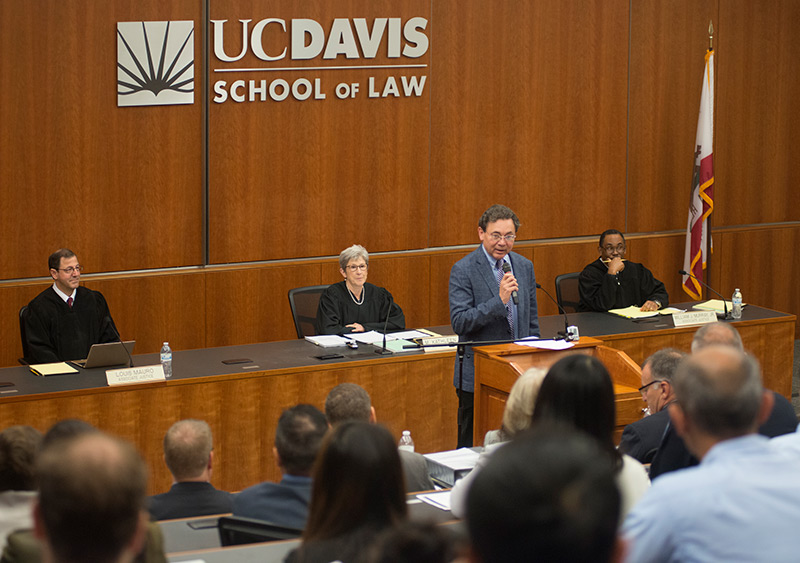Aspiring attorneys take note: Don’t interrupt the judge, come to court prepared and don’t open your arguments with a poem. Those were among the lessons state appellate court justices gave UC Davis law students after hearing arguments in two cases last week at King Hall.
A panel of three 3rd District Court of Appeal associate justices — including two UC Davis School of Law alumni — heard oral arguments Wednesday (Oct. 26) in a pair of cases. Afterward, two more associate justices joined the panel for a question-and-answer session with the packed room of assembled students.

"The UC Davis School of Law has been fortunate enough to host the California Court of Appeals, the California Supreme Court, and the U.S. Court of Appeals for the 9th Circuit, and each time a working court visits it is a unique opportunity for our students to see and experience the legal system at work,” Dean Kevin Johnson said. “Just as important, our students have had the opportunity to interact with the justices in question-and-answer sessions.”
Students asked about the justices’ career paths and decision-making process, and for tips to become a more persuasive attorney.
Briar Horn, a first-year law student, told the justices they had “amazing poker faces” for being able to hide their feelings about the cases. He asked how they settled on a ruling.
“Is it a full-on argument behind closed doors?” he asked.
The justices said one of them will start by writing a draft opinion on the case, and the others will comment on the document electronically. They don’t always agree, but they still work very closely together.
“The relationship between justices is everything,” Associate Justice Louis Mauro, J.D. ’87 said. “We work at that.”
First-year law student Audrey Kyan asked how the experience of working in an appellate court compared to being a trial judge.
Associate Justice William Murray, who worked as a trial judge in San Joaquin County for 15 years, said trial cases are less about policy and more about individuals.
“Almost every day there’s an opportunity to have a direct impact on somebody’s life,” he said. “I sort of miss that.”
Not everyone at the event was a law student. Abraham Akhtar, a senior political science major, said he was attending his first court hearing because he was deciding whether to pursue law school. He said the proceedings weren’t exactly what he was expecting.
“What I noticed is how direct the court is.”
Media Resources
Cody Kitaura/Dateline, Dateline, 530-752-1932, kitaura@ucdavis.edu
